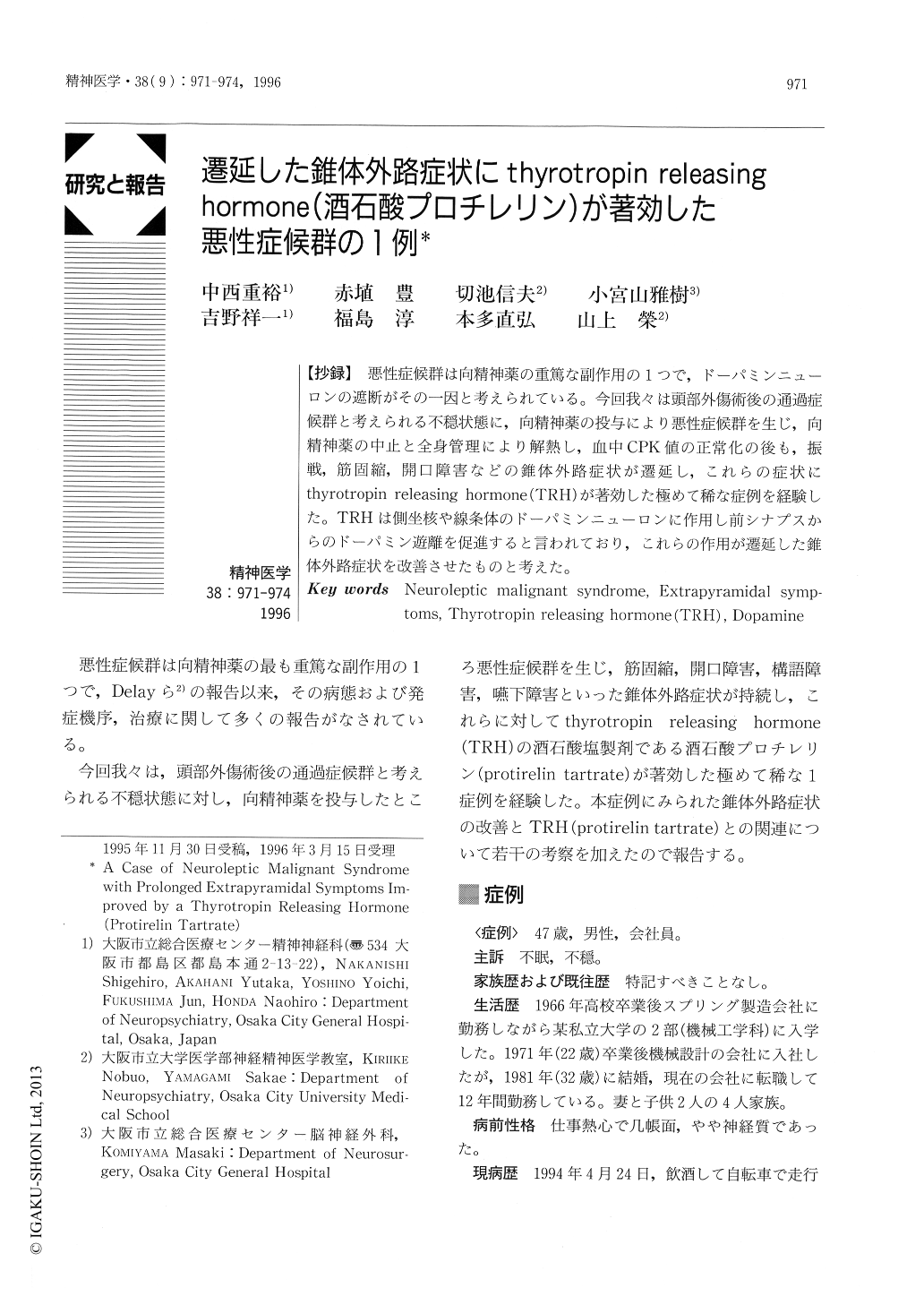Japanese
English
- 有料閲覧
- Abstract 文献概要
- 1ページ目 Look Inside
【抄録】悪性症候群は向精神薬の重篤な副作用の1つで,ドーパミンニューロンの遮断がその一因と考えられている。今回我々は頭部外傷術後の通過症候群と考えられる不穏状態に,向精神薬の投与により悪性症候群を生じ,向精神薬の中止と全身管理により解熱し,血中CPK値の正常化の後も,振戦,筋固縮,開口障害などの錐体外路症状が遷延し,これらの症状にthyrotropin releasing hormone(TRH)が著効した極めて稀な症例を経験した。TRHは側坐核や線条体のドーパミンニューロンに作用し前シナプスからのドーパミン遊離を促進すると言われており,これらの作用が遷延した錐体外路症状を改善させたものと考えた。
A 47-year-old man with transient syndrome following surgery for acute subdural hematoma due to severe head trauma developed neuroleptic malignant syndrome and paralytic ileus after administration of neuroleptic drugs. After a two-week discontinuation of the neuroleptic drugs, high fever, serum creatine phosphokinase (CPK) levels and paralytic ileus were normalized and improved, but extrapyramidal symptoms and delirium still continued. Bromocriptine, a dopamine agonist, could not improve the extrapyramidal symptoms, and rather worsened delirium. Then we administered a thyrotropin releasing hormone tartrate (protirelin tartrate) to improve the disturbance of consciousness. Unexpectedly, we found a dramatic improvement of the extrapyramidal symptoms in a few hours and observed complete relief within 5 days. We discussed the underlying mechanism of TRH for improvement of delayed extrapyramidal symptoms of neuroleptic malignant syndrome.

Copyright © 1996, Igaku-Shoin Ltd. All rights reserved.


